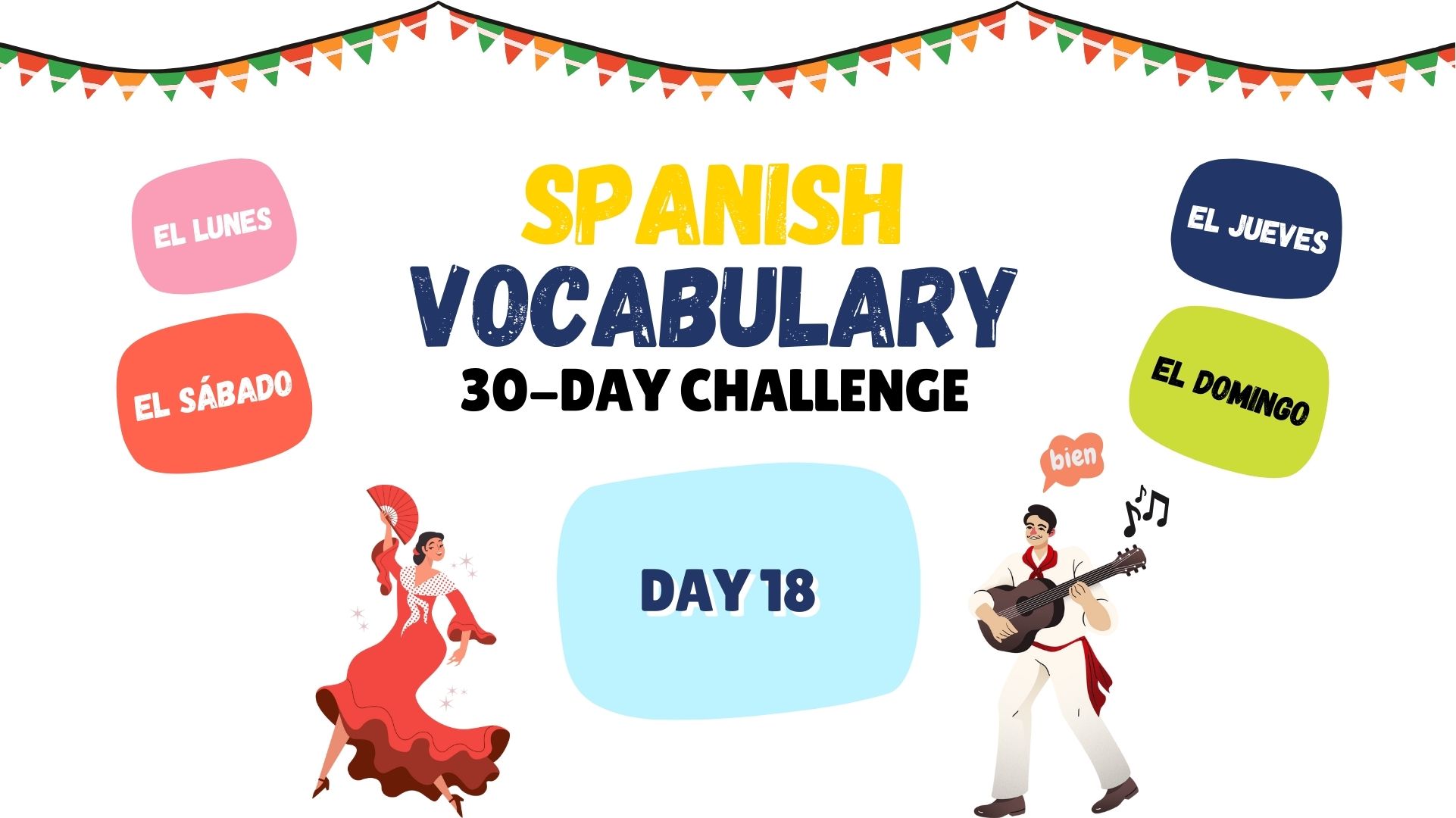
Day 18: Días de la Semana (Days of the Week)
¡Hola, cómo estás? Building your vocabulary is crucial for learning any new language. Today, we’ll focus on the Spanish vocabulary for the days of the week.
Having the days of the week down will help you discuss your schedule, make plans, and simply converse more fluidly in Spanish. Forgetting what day it is will be cosa del pasado (a thing of the past) once you master this essential vocabulary. Let’s dive in!
| El lunes eyl loo-neys | Monday |
| El martes eyl maar-teys (‘t’ has a soft sound) | Tuesday |
| El miércoles eyl mee-yeyr-ko-leys | Wednesday |
| El jueves eyl khoo-ey-veys | Thursday |
| El viernes eyl vee-yeyr-neys | Friday |
| El sábado eyl saa-baa-do (‘d’ has a soft sound) | Saturday |
El domingo | Sunday |
Why don’t we take a quick quiz to practice these words? Answer the following!
- How do you say “Wednesday” in Spanish?
a) Miércoles
b) Jueves
c) Viernes - True or False: The “d” in “sábado” (Saturday) has a soft sound.
a) True
b) False - Arrange these days in order from the start of the week:
a) Viernes, Domingo, Martes
b) Martes, Domingo, Viernes
c) Martes, Viernes, Domingo - Translate this to English: “El jueves”
a) Thursday
b) Tuesday
c) Friday - Speak all the days of the week in sequence, out loud.
- Fill in the blank: Sábado y _____ son los días del fin de semana.
a) Viernes
b) Domingo
c) Lunes
Check your answers!
- a
- a
- c
- a
- Check if you got the sequence and pronunciations right.
- b
Learning these basic days of the week is just the start. Soon you’ll be discussing your weekly routines, making future plans, and conversing more naturally in Spanish!




